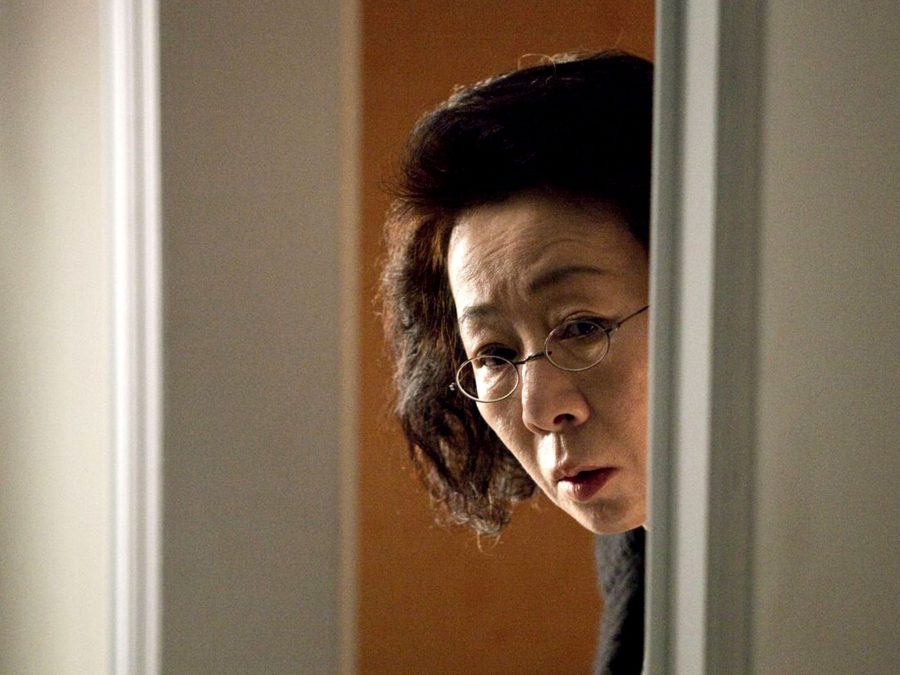Western audiences may only have become aware of Korean actor Youn Yuh-jung when she won an Oscar earlier this year for her performance as the cantankerous yet lovable grandmother, Soonja, in Lee Isaac Chung’s Minari. However, the veteran performer has appeared in many classic Korean films over the past 50 years, and was recently awarded the country’s highest cultural honour, the Geumgwan Order of Cultural Merit. In celebration of her varied career, this year’s London Korean Film Festival has programmed a retrospective of her finest work.
The jewel in the programme’s crown is the recent restoration of Kim Ki-young’s Woman of Fire which catapulted Youn into the public eye back in 1971. A torrid melodrama, it was the first of several remakes Kim made of his own earlier film, The Housemaid. Youn was cast in the lead role of Myeong-ja, a rural naïf who finds a job in the city as a domestic servant to bourgeois couple Dong-shik (Namkoong Won) and Jeong-suk (Jeon Gye-hyeon). As well as tending to the family’s chicken farm – the sexing of chicks will no doubt call to mind a similar scene in Minari – Jeong-suk tasks Myeong-ja with keeping an eye on her husband, who she suspects of philandering with a young singer.
Myeong-ja is unable to resist Dong-sik’s drunken advances herself and soon the house is a seething pit of venom, enforced abortions, blackmail, and worse. Youn is wonderful as Myeong-ja, able to turn on a dime from innocent country hick to conniving seductress. Kim supposedly cast her for her unconventional, modern beauty, but it is her inscrutable eyes that make her so enigmatic. By the end of the film Myeong-ja is clearly crazed, but Youn manages to retain enough control that you’re conflicted, questioning your judgement of her, enthralled by the challenge of understanding her intentions even while the events become ever more ludicrous and vicious, saturated in Kim’s lurid reds and blues.

It’s fascinating to see Woman of Fire programmed alongside Im Sang-soo’s supremely stylish 2010 remake of The Housemaid. It was a minor supporting role in Im’s 2003 film A Good Lawyer’s Wife (also playing at the festival) that marked the beginning of Youn’s return to prominence after she gave up acting in the mid-’70s and emigrated to America with her husband, the singer Jo Young-nam.
Youn returned to Korea and took up acting again in the late ’80s after their marriage ended, but the societal stigma attached to divorce prevented her from being offered significant roles for several years. In A Good Lawyer’s Wife, she steals her scenes as the forthright mother of the eponymous lawyer, particularly amusing in a candid discussion of her intentions for sexual fulfilment after the death of her husband. Her role in Im’s remake of The Housemaid offers less humour but is similarly compelling.
In this instance, Youn plays an older housemaid, Miss Cho, tasked with managing the work of a new younger woman, Eun-yi, played by Jeon Do-yeon, who will become the composer’s concubine. Miss Cho has quite a complicated part to play in the household machinations, both informing on Eun-yi’s transgressions and then encouraging her flight before things spiral out of control.
It’s an excellent and nuanced turn from Youn, who at first displays poise and thinly-veiled contempt before she softens a little, and the audience comes to recognise this woman’s flinty resilience and her increasing intolerance of her amoral employers. This balance of toughness and warmth pervades many of Youn’s most celebrated roles – from the feisty, dangerous lovers of her early films to the charming directness of Minari, The Housemaid, and another film selected as part of the retrospective, E J-yong’s striking and strange The Bacchus Lady.
Following the exploits of an ageing prostitute, So-Young (pun intended), who has a reputation for helping elderly men find some afternoon satisfaction, the film begins as a gentle comedy-drama about outcasts. Then, mid-way through, it transforms into a much darker reflection on the plight of Korea’s destitute elderly population. It’s a tonal shift that might destabilise a film with less of a steady hand on its tiller, but Youn happily moves from the sly wink needed to pick up pensioners in the park to something more sombre and mournful with a deftness that feels completely natural. It’s this ability that sees her continue to make consistently interesting work, and long may it continue.
The London Korean Film Festival runs 4-19 November. For more info visit koreanfilm.co.uk
The post In praise of Youn Yuh-jung – Korean cinema’s most enduring star appeared first on Little White Lies.
![Forest Essentials [CPV] WW](https://s3-us-west-2.amazonaws.com/pcw-uploads/logos/forest-essentials-promo-codes-coupons.png)
0 comments